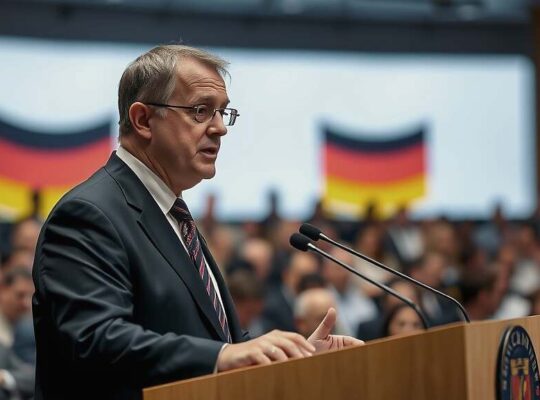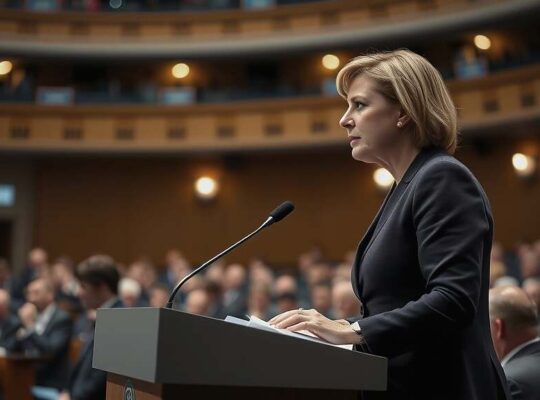The German Finance Ministry is escalating oversight of how government departments are deploying funds from the expansive €500 billion infrastructure investment vehicle (SVIK), signaling a push to curb potential departmental overreach and ensure targeted spending. Vice Chancellor and Finance Minister Lars Klingbeil (SPD) has formally notified his cabinet colleagues of heightened scrutiny, according to a letter reported by “Handelsblatt”.
The move aims to preempt a scenario where individual ministries prioritize pet projects over strategically vital infrastructure upgrades. Klingbeil’s letter underscores the limited nature of the substantial funds, emphasizing the need for “goal-oriented” and “effect-oriented” spending. He warns against viewing the SVIK as an inexhaustible resource, insisting on rigorous economic feasibility studies during the planning phase to guarantee optimal resource allocation.
The Finance Ministry’s heightened control extends beyond initial project proposals. Klingbeil has mandated that all departments submit detailed information regarding their spending plans, with the explicit expectation of ongoing “performance checks” to verify the efficacy of the debt-financed investments and confirm they are achieving the intended impact. This signals a commitment to accountability, moving beyond mere approval to ongoing evaluation of outcomes.
Sources within the government, as reported by “Handelsblatt”, indicate the establishment of a dedicated task force within the Finance Ministry. Comprised of officials from various departments, the task force is charged with direct oversight of SVIK fund management, further solidifying the Finance Ministry’s central role in controlling the distribution and accountability of these significant funds. The move reveals an internal concern within the German government regarding potential inefficiencies and a desire to ensure that the massive investment vehicle delivers demonstrable returns rather than becoming a vehicle for departmental self-interest.












